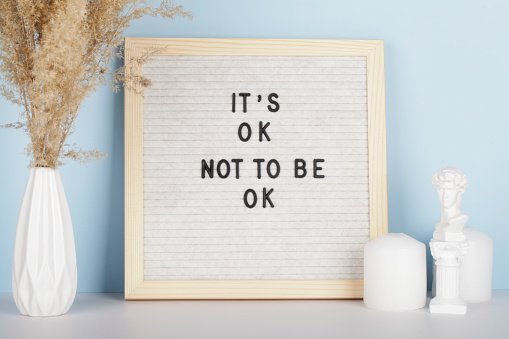Relationships

If you are trying to cope with a divorce, you may experience a grieving process. Know this is normal and that there are several things you can do in order to cope with difficult feelings. Divorces can be exhausting, overwhelming, and full of negative emotions. You may experience feelings of depression, anxiety, and/or stress. Know that these feelings are valid. While you navigate through this grieving process, you may go through cycles of feelings. It is important amidst this to enjoy all the things you previously loved doing and make space for you and what brings you joy.

Trust in a relationship, whether it is a romantic relationship or a relationship with a friend or family, is one of the most important building blocks for a close, healthy relationship. It is also unfortunate how easy it is to lose trust, and how challenging it can be to rebuild. To rebuild trust you need time, patience, and hard work; and it is possible if both people are motivated.

Love can have a language of its own, from the way we show love to the way we like to receive love. It is important to be in tune with how you prefer to be loved by others, this can make it easier to understand what it is we are looking for from others. It is also important to understand how your partner likes to receive love because this can make it easier to make them feel appreciated in their own way. In 1992 Dr. Gary Chapman wrote the book “The 5 Love Languages” which can help to work as a guide, noting five areas that are most prominent ways that individuals show and receive love. Take a minute to reflect on how you feel appreciated or loved by others, now look at the following descriptions of the five love languages to see where you align!

It is never easy when a friendship ends. It could have happened one of two ways, either you were the one to end it, or your former friend decided to. And it was likely due to so many reasons, either the friendship was toxic, codependent, a significant event, the relationship just drifted apart, etc. Romantic breakups are more talked about than friendship breakups, but they happen to everyone, and they can hurt just as bad.

We may have all heard the term “problem-solving” but I wonder how many people actually know the steps in the process. If you ask someone how to solve a problem, they may say something like “just find what works” or “figure out the problem before trying to solve it” and just like how the average person could change the brakes on their car, an experienced mechanic will know all the basics just as well as they would know all the subtleties and best practices that would take the process from just working to working optimally. I am sure that many people reading this could say that they have solved countless problems in their lives, but to have a step-by-step guide on an effective method of doing so may yet be useful.

When the concept of personality is mentioned, many people think of someone’s sense of humor or their general affect or their personal style, but in the field of psychology personality has a particular definition. This definition is according to the American Psychological Association (https://www.apa.org/topics/personality, 2022): “Personality refers to individual differences in characteristic patterns of thinking, feeling and behaving.”

If you have teenagers or have older children who were at some time a teenager, you may be able to understand how different it can be to interact with someone from the ages of 13-19 than it is to interact with someone younger or older. It has been well documented those adolescent years have unique and often challenging experiences for both the teen as well as those close to them in their lives. It is in these years that many parent-teen relationships suffer with both parties feeling as if the other is so disconnected. This is a common issue that many families struggle with, and it is also indicative of a time in all our adolescent journeys that we may use to relate to one another.

When a loved one is struggling with mental health or life difficulties, and they come to you for support it can be hard to know how to navigate the conversation or how to respond. Sometimes, it is instinctual to jump into “fix it” mode with advice or to become overly positive. While this can be helpful at times, it can also be a strength to provide validation or to be a comforting presence. Providing validation does not mean that you necessarily agree with this person, rather it is taking the time to learn about the emotions, show respect, and express acceptance. The following are some helpful tips for providing support and emotional validation for a loved one.

One of the most important relationships that make up your life is the relationship that you have with yourself. The way that you treat yourself, talk to yourself, or even follow through on promises you’ve made to yourself can impact your overall mental health and wellbeing. It is easy to fall into a cycle of pleasing others and seeking external validation, however, this takes away from your ability to trust or even love yourself. The relationship you have with yourself also directly impacts the way in which you connect with others.

Whether you began a relationship with your partner many years ago or just found each other, the impact of life-changing events can throw the chips up in the air for many relationships. The need for building new habits and routines alone can cause stress in a relationship. With all the changes that can occur in daily living, relationships have been tested to their limits in the events of things like divorce, loss of a job, having a baby, relocating, etc. Whether is it a large societal shift or increased anxiety about individual life changes, a new normal is not something for which anyone is fully prepared. So, what is it that one could do to build resiliency in your relationship so that it is given its best chance for success in challenging times?